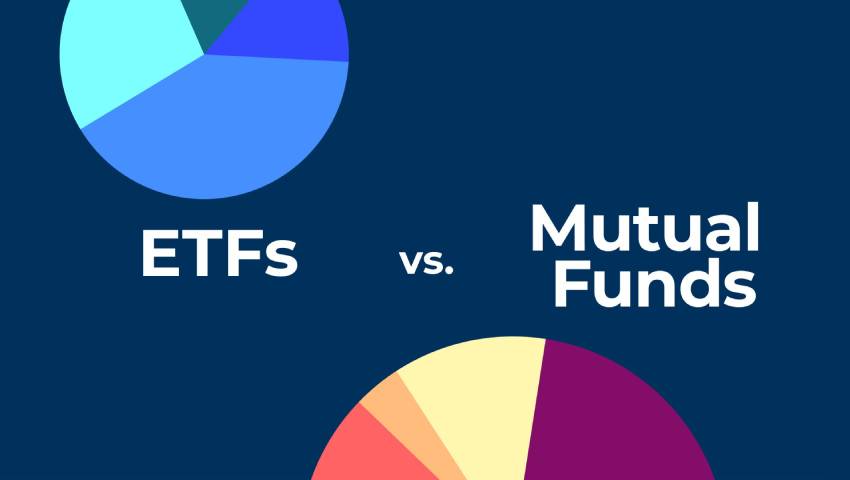
- 18/10/2024
- MyFinanceGyan
- 187 Views
- 5 Likes
- ETF, Investment, Mutual Fund
Difference Between ETF and Mutual Fund
ETF and Mutual Fund are both popular investment options in India. They allow investors to diversify their portfolios and offer professional management. However, there are key differences between the two that investors should understand before deciding which one is right for them.
What is an ETF?
An ETF (Exchange-Traded Funds) is an investment that tracks an index or asset, like the Nifty 50. It is passively managed, which means it simply mirrors the performance of the index instead of trying to beat it. ETFs are traded on stock exchanges, so you can buy and sell them throughout the day just like regular stocks.
What is a Mutual Fund?
A mutual fund is actively managed by fund managers who aim to outperform the market. They make decisions about which securities to buy or sell based on their research and outlook. Unlike ETFs, mutual funds are bought and sold only at the end of the day, based on the fund’s Net Asset Value (NAV).
Key Differences Between ETFs and Mutual Funds:
- Trading and Liquidity: ETFs are traded on a stock exchange, meaning their prices fluctuate throughout the day based on demand. This makes them more liquid and easier to buy or sell at any point during trading hours. Mutual funds, on the other hand, can only be traded once per day, after the market closes, at their NAV price.
- Cost Structure: ETFs usually have lower costs because they are passively managed. This means the fund manager isn’t actively making decisions, which keeps fees low. Mutual funds, being actively managed, have higher management fees to cover the costs of professional decision-making. Some mutual funds may also charge sales or redemption fees.
- Management Approach: ETFs are passively managed, meaning they follow a specific index or asset. This makes them more transparent and less risky in terms of management decisions. Mutual funds are actively managed, so fund managers buy and sell securities based on their analysis, aiming to outperform the market, but this also introduces more risk and higher costs.
- Minimum Investment: ETFs generally allow you to start investing with a smaller amount since they are traded like stocks. In contrast, mutual funds often require a higher minimum investment, making them less accessible for some investors.
- Diversification: ETFs typically focus on tracking a particular index, giving investors exposure to a specific group of companies within that index. Mutual funds offer a wider range of diversification options, often allowing investors to gain exposure to different asset classes like stocks, bonds, or a combination of both (hybrid funds).
ETF vs Mutual Fund: Which is Better?
The choice between ETF and mutual fund depends on your individual needs and preferences. If you prefer a more flexible investment that can be traded throughout the day with lower costs, an ETF might be a better option for you. On the other hand, if you want professional management and are willing to pay higher fees for the potential to outperform the market, a mutual fund could be more suitable.
Conclusion:
ETFs are a good choice for investors looking for low-cost, passively managed options that provide liquidity and the ability to trade throughout the day. Mutual funds, while more expensive, offer the benefit of active management and potentially broader diversification. When choosing between the two, it’s important to consider your investment goals, risk tolerance, and the length of time you plan to hold your investment.
Disclaimer:
This article is intended for educational purposes only and is not a recommendation to invest in any particular product. Consult with a financial advisor for personalized advice.



